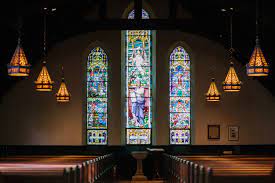
Rethinking (Reframing) Pastoral Ministry – Is the Church the Problem? (1.2)
September 13, 2022 Roland Kuhl 0 Comments
I am a graduate of Fuller Theological Seminary and its new 6th president, David Emmanuel Goatley, noted in a YouTube message (https://www.youtube.com/watch?v=mninGqkS-jk) introducing himself that, “this is a tough time to be a pastoral leader and to be a congregation.” He further added, “I don’t believe that the church is the problem. We have problems, but God has trusted us [the church] and is empowering us to be part of the solution.”
With this I somewhat agree. The church or the theological idea of the church is not the problem, but perhaps how we are church in North America is the problem, in the way we frame how we seek to be in our communities – often expressing our own mission, rather than God’s mission, seeking to focus on our survival rather than living incarnationally and serving those to whom we have been sent (see John 20: 21), fostering leadership that seeks to be out front, controlling and shaping, rather than coming alongside, discerning the action of the Spirit and serving as a catalyst in a posture of servantship in living and participating in the continuing mission and ministry of Jesus. Yet, when the church lives incarnationally and humanely, being who Jesus was and is, then the church is what it ought to be. We, as the church, need to take a hard look at ourselves.
Indeed, much has been written about how the church has lost its way in the West (see the publications by organizations such as The Gospel and Our Culture Network – https://gocn.org) . A result of this is what is shaping my current ministry among people – specifically people who are leaving church because they have been “hurt” by the way church is – these are people who are done with church, yet still open to God. They have come to the realization that in order to follow Jesus the best context may not be the North American church.
I often have colleagues respond when I note that I engage those who are “done with church” just how I go about drawing them back into church. My response is matter of fact: “church is what they are leaving, so why would they want to come back into church.” Yet, I do believe that as those who are done with church continue to grow and mature, as they find others who are wrestling with similar issues, as they gather together to speak the life of Christ into one another, that something will form out of this, something that the Spirit of God shapes, a gathering, if you will, that re-creates how we think of church, how we are church, indeed new wineskins that is able to hold what God is doing among those who are done with the way church is presently being done in North America (see Matthew 9:14-17, Mark 2:18-22 and Luke 5:33-39).
This re-creating action of the Spirit that God is doing among those who are seeking for fresh ways of following Jesus and continuing the mission and ministry of Jesus in the world also challenges us to rethink what it means to be leading pastorally (I often speak of “leading” rather than “leadership,” because I have come to believe that the way of Jesus is not so much a posture of leadership, but rather that we are called to exercise the gift of leading through a posture of servantship – see Matthew 20: 25-28). Just as the Spirit has been sent to come alongside us (see John 14: 15), so too the pastoral role is one of coming alongside (a ministry of paraclesis) and serving as a catalyst in pointing and guiding others to follow Christ and be open to the Spirit. We lead best not when we have others follow us, but when in our leading we guide others to follow Christ, be open to the Spirit, fulfill the calling that God is placing upon their lives.
And so as I continue to explore what the Spirit of God is doing in my neighborhood, among the people among whom I am coming alongside, I find myself exercising my pastoral gifts, listening and guiding, helping people to discern and hear what God is doing in their lives, to encourage them to respond to what God is doing in them, to indeed be a catalyst, a guide, as they discover and grow in seeking God and finding others with whom they might journey together in living their daily lives in light of God’s active presence in them. I wholeheartedly believe that as we give space to the Spirit to move in our neighborhoods, as we allow ourselves to be instruments of God’s Spirit, what will be new wineskins, new ways of being “church” will flourish.